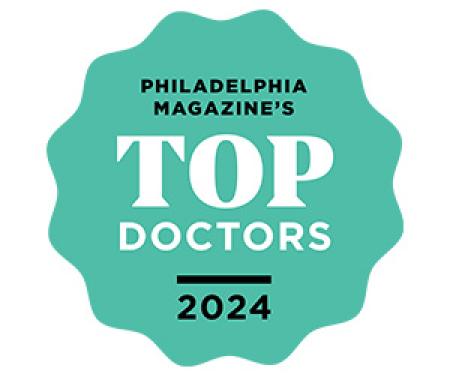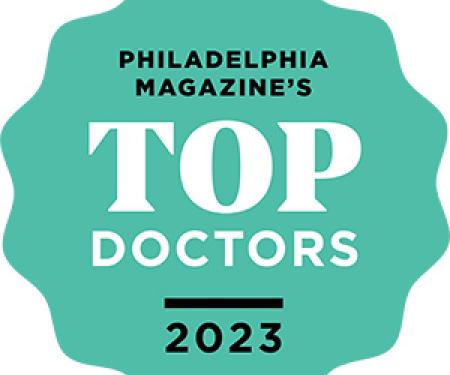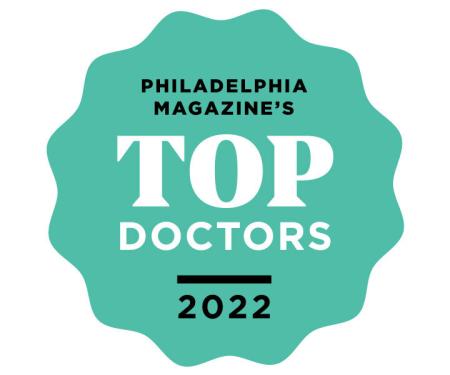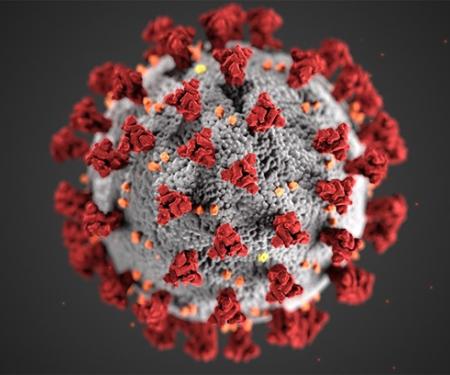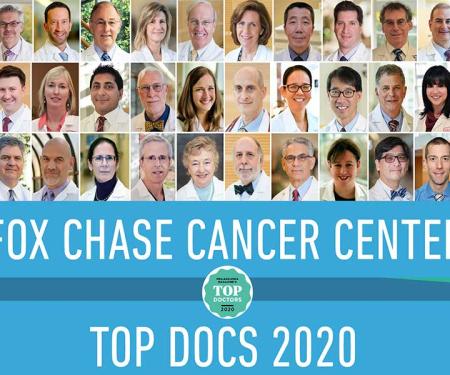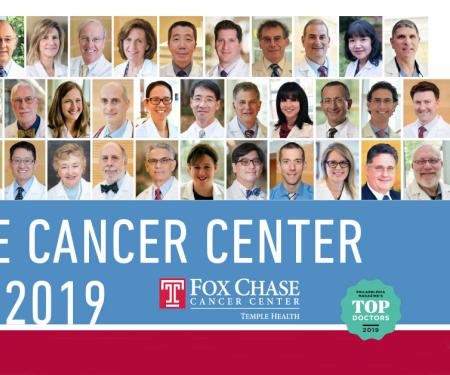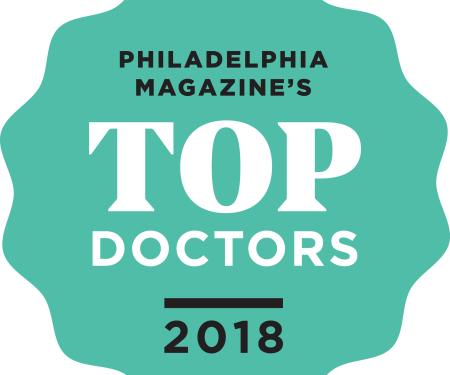Related Articles
00 / 00

Request an Appointment
Chair, Department of Medicine
Audrey Weg Schaus and Geoffrey Alan Weg Chair in Medical Science
GERD & Barrett's Esophagus, Esophageal Cancer, Colorectal Cancer, Stomach (Gastric) Cancer
Molecular Epidemiology of Gastrointestinal Disease; Risk Assessment
I joined the staff at Fox Chase Cancer Center in 2001 as director of gastroenterology. While my gastroenterology colleagues and I see many patients with cancers of all types, we are very happy to care for the gastrointestinal needs of patients without cancer as well.
I have a special interest in cancer prevention, especially for patients who are at average risk for gastrointestinal cancers. The current methods of gastrointestinal cancer prevention tools, like colonoscopy, are very effective. However, it is very likely that the next generation of screening techniques will be substantially better. Finding new ways to increase participation in screening programs and to use molecular or genetic markers to provide more accurate estimates of risk are particular interests of mine. Hopefully, finding such markers will allow for better targeting of screening and other risk reduction strategies now and in the future.
Colorectal cancer (CRC) is the second leading cause of cancer death in the U.S. Periodic screening can reduce the incidence and mortality from this disease. Unfortunately, screening is underutilized. Less than 50% of the U.S. population has been appropriately screened according to standard guidelines. The poor acceptance rate is particularly disappointing since no other common human malignancy represents such an appropriate target for cancer prevention. Effective strategies to increase screening rates, targeted towards patients or providers, have proven elusive. The major goals of our research program are the development of novel CRC risk stratification tools in average risk populations to facilitate more appropriate use of screening tests as well as investigating new methods to increase screening utilization. Several ongoing, large multi-center trials are underway that investigate new clinical platforms for CRC screening, the impact of gene-environment interaction on CRC risk stratification and the utility of patient specific information tailoring to increase CRC screening use.
David S. Weinberg, MD, MSc, has served as the Chair of the Department of Medicine since his appointment in 2008.
Dr. Weinberg’s research centers on the prevention and control of gastrointestinal malignancies with a particular interest in biomarkers, chemoprevention, the cost effectiveness of clinical care and in novel methods to promote cancer screening utilization. He currently holds research support from the National Institutes of Health, the pharmaceutical industry, and philanthropic organizations. He is the author of more than 150 peer reviewed manuscripts and serves as the Editor-in-Chief of Gastroenterology, the specialty’s premier biomedical journal.
In addition to research, Dr Weinberg continues an active clinical practice in Gastroenterology, winning multiple “top doctor” awards. In addition, he serves as the Chief Medical Officer of the Temple University Health System’s Office of International Health. Beyond activities at Fox Chase he has been appointed to leadership roles on national committees for a range of groups including the American Board of Internal Medicine, the National Cancer Institute, the American College of Physicians (ACP) and the American Gastroenterological Association (AGA).
Dr. Weinberg received his undergraduate degree magna cum laude from Yale University and his MD from Cornell University Medical College, where he earned the Research Thesis Award and was a member of the Alpha Omega Alpha honorary society. He served his internship and residency in internal medicine at Beth Israel Hospital in Boston and then his Gastroenterology fellowship training at the University of Pennsylvania. Concurrently, he was a National Research Service Award fellow in cancer epidemiology earning a masters’ degree in epidemiology from the University of Pennsylvania.
Calip G.S., Meropol N.J., Weinberg D.S., Colorectal cancer incidence among adults younger than 50 years-understanding findings from observational studies of lower gastrointestinal endoscopy. JAMA Oncol, 2022. https://www.ncbi.nlm.nih.gov/pubmed/35511156.
Weinberg D.S., Foster N.R., Della'Zanna G., McMurray R.P., Kraft W.K., Pallotto A., Kastenberg D.M., Katz L.C., Henry C.H., Moleski S.M., Limburg P.J.,Waldman S.A., Phase I double-blind, placebo-controlled trial of dolcanatide (sp-333) 27 mg to explore colorectal bioactivity in healthy volunteers. Cancer Biol Ther. 22(10-12): 544-553, 2021. https://www.ncbi.nlm.nih.gov/pubmed/34632925.
Weinberg DS, Carlos R, Gatsonis C, Zeh H and O’Dwyer P: Study design and rationale for a comparative study of two pancreatic cyst surveillance strategies. Contemp Clinical Trials 2020; 97:106144
Kuntz K, Popp J, Beck JB, Zauber A, Weinberg DS: Cost-Effectiveness of Post-Diagnostic Surveillance Strategies After Resection of Colorectal Cancer: Is There a Role for CT Colonography? BMJ Open Gastro 2020: 7:e000450. doi: 10.1136/bmjgast-2020-000450
Kutikov A, Weinberg DS, Edelman MJ, Horwitz EM, Uzzo RG, and Fisher RI: A War on Two Fronts: Cancer Care in the Time of COVID-19. Annals of Internal Medicine 2020 Jun 2;172(11):756-758
Weinberg DS and Schoen RE: Pre-neoplastic Colorectal Polyps: “I Found Them, Now What?” Annals of Internal Medicine 2019; 171:667-6682.
Weinberg DS, Mitnick J, Keenan EM and Ross EA: Post-operative Colorectal Cancer Surveillance: Preference for Optical Colonoscopy Over Computerized Tomographic Colonography. Cancer Causes and Control 2019;30(11):1269-1273
Weinberg DS, Pickhardt PJ, Bruining DH, Edwards K, Fletcher JG, Gollub MJ, Keenan EM, Kupfer SS, Li T, Lubner SJ, Markowitz AJ, Ross EA. Computed Tomography Colonography vs Colonoscopy for Colorectal Cancer Surveillance After Surgery. Gastroenterology 2018;154(4):927-934
Kupfer S, Lubner S, Ross E, Li T, Keenan E and Weinberg DS: Adherence to Post-Resection Colorectal Cancer Surveillance at National Cancer Institute-Designated Comprehensive Cancer Centers. Cancer Med. 2018;7(11):5351-5358
